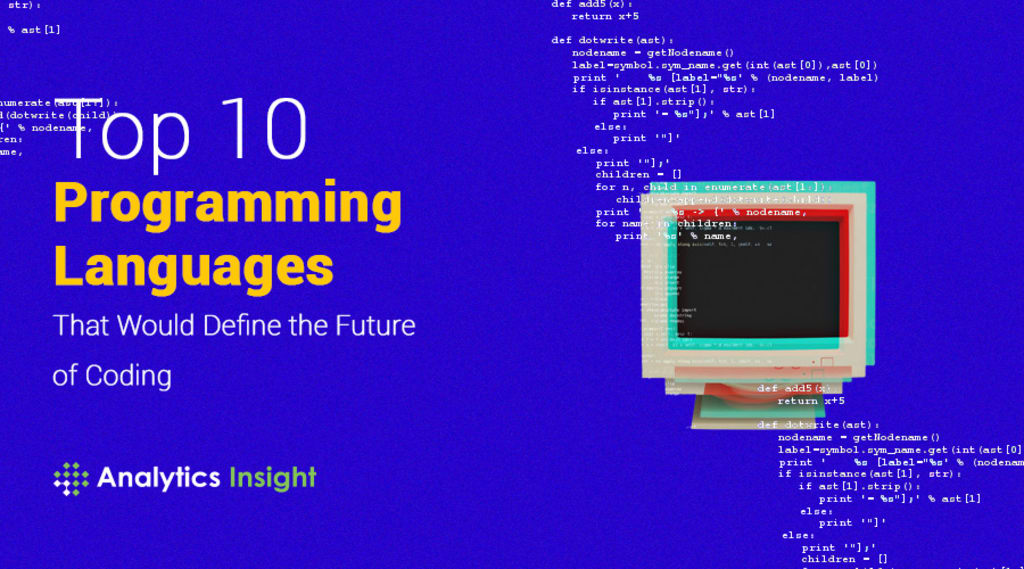Top 10 Programming Languages That Would Define the Future of Coding
Programming | Coding | Future Tech

Organizations, these days, don’t think twice before relying on programming languages for they know how easier it has become for them to achieve their goals. Talking about programming, cloud programming languages have started to gain huge popularity. However, it is always important to have a fair understanding as to which among them is worth it all. Well, we have made it easier for you. In this article, we will talk about the top 10 programming languages that would define the future of coding.
1) Python
Python has gained wide popularity as a server-side language that caters to a wide range of applications. Be it simple scripting to advanced web applications, this cloud programming language has got you covered. Python enables the developers to use a variety of programming styles including reflecting, functional, etc. In addition to all of this, Python is considered to be one of the easiest and marketable programming languages to learn.
2) JavaScript
For organizations with an objective to create dynamic web elements such as animated graphics, interactive maps, etc., there cannot be a better programming language to rely on than JavaScript. This programming language has wide applications in the area of web development, building web servers, game development, etc.
3) Golang (Go)
Go, as known to many, is a cloud programming language developed by Google. Its ability to handle multicore and networked systems and massive codebases is the very reason of its growing popularity. This has led to huge companies such as Google, Uber, Twitch, Dropbox, etc. relying on for APIs and web applications.
4) Java
When it comes to web development, application development or big data, Java needs no special mention. This is a general-purpose programming language with an object-oriented structure that is owned by Oracle Corporation. Though this is a little complex programming language to learn, the extent to which it is used across organizations speaks volume about how reliant the language is.
5) C#
The ability of C# supporting the concepts of object-oriented programming has been one of the major reasons behind its popularity. Considered to be ideal for applications on Windows, Android, and iOS, no wonder C# makes it to the list of top 10 programming languages that would define the future of codingbs.
6) R
R is used for processing statistics, including linear and nonlinear modelling, calculation, testing, visualization, and analysis which is why R is one of the best programming languages to learn. Someone with a good understanding of mathematics can work on R without any discomfort whatsoever. This is an open-source programming language that is cross-functional with Linux, Windows, and Mac OS.
7) C++
C++, a cross-platform programming language, boasts of a truck load of features such as data abstraction, polymorphism, inheritance, etc. C++ is widely used in desktop application development, GUI application development, 3D game development, and building real-time mathematical solutions. Yet another remarkable feature of this programming language is that its code compilation speed is far better than Java and Python.
8) Swift
Swift is relatively a new language. However, it does find its spot in the top 10 programming languages that would define the future of coding. This programming language is easy to the extent that even beginners can develop a fair understanding. Swift is known for its speed, performance, and security.
9) Kotlin
Kotlin, an open-source programming language, is yet another high-in demand language to learn in 2023 for better jobs. Companies such as Netflix, Pinterest, and Amazon Web Services make use of this language because of its features such as support for lambda functions, smart casts, null safety, and operator overloading.
10) Ruby
Ruby has evolved to become extremely popular for web developers. This programming language boasts a syntax that is easy to read and write. Yet another point that is worth a mention is that its object-oriented architecture supports procedural and functional programming notation.
Thanks for reading. Lets see in another interesting blog - Athiyaman :)






Comments
There are no comments for this story
Be the first to respond and start the conversation.